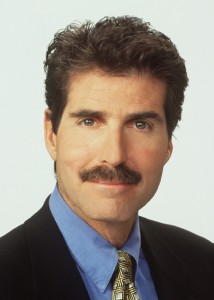The New York Times put Charles Murray on the cover of its Sunday Magazine, calling him “The Most Dangerous Conservative.”
That was after he co-wrote the book, “The Bell Curve,” which argued that different ethnic groups have, on average, different IQs. As Murray puts it in my video this week, “Blacks on average have a lower IQ than whites. However, whites are not at the top. East Asians, on average, have a higher IQ than whites. Ashkenazi Jews have higher IQs.”
Other researchers agree.
An article in ScienceDirect journal puts it this way, “East Asians and their descendants average an IQ of about 106, Europeans and their descendants about 100, and Africans and their descendants about 85.”
But many people don’t believe it. Many don’t even want such topics discussed.
Last time Murray tried speaking to college students, a mob shouted him down.
“They’re angry at you because you’re perpetuating racism,” I tell Murray.
“These kids,” he replies, “never read a word of anything I’d ever written.”
That’s probably true. It’s more likely that they just read slander against him from smear sites like the Southern Poverty Law Center.
They call Murray a “white nationalist” and claim he says, “White men … are intellectually, psychologically and morally superior.”
“I’ve never said anything remotely like that!” says Murray.
“Do you believe that Blacks are intellectually inferior?” I ask.
“If you give mental tests to a representative sample of whites and a representative sample of blacks,” he says, “there will be about a one standard deviation difference. To then translate that into people being inferior and superior is idiotic.”
He goes on to say that there are other differences between racial groups.
“I don’t think there’s been a white winner of the 100-yard dash in the Olympics for a zillion years.”
Actually, 20 years. A white woman won 20 years ago; a white man hasn’t won for 40 years.
It’s probably because some Black people have more fast-twitch muscles fibers, says Murray.
I don’t see why saying that is controversial. It’s just obvious that there are differences between groups.
But Murray has been canceled.
It’s too bad.
Everything should be talked about. People who don’t agree with Charles Murray should debate him, not shun him.
He is good at revealing unpopular truths.
He once had a job working for the government, evaluating social programs. He discovered that the “War on Poverty” was not lifting people out of poverty. In fact, programs like welfare perpetuated poverty.
He wrote a book about that titled “Losing Ground.”
It soon became a bestseller, and influenced presidents from both parties. Welfare “reformers” Ronald Reagan and Bill Clinton cited Murray’s work. Clinton said, “Murray has done the country a service.”
Then Murray wrote “In Pursuit of Happiness and Good Government” — a book that changed my thinking.
He describes his time as a Peace Corps volunteer in Thailand. He watched Thai government “experts” create what they said would be a “model community.” They gave the village a fishpond, a rice cooperative, a health clinic. But this aid diminished community activities.
“They weren’t as happy as they used to be,” says Murray. “I saw what government looks like from Bangkok and how it looks to the villager. It’s the same in the United States.”
The United States has spent $25 trillion (so far) on our War on Poverty. But the poverty rate has stayed about the same. Instead of eliminating poverty, the War created a new “underclass” — fatherless kids who give birth to other fatherless kids — generations of families who become dependent on government handouts.
Yet the programs keep growing.
“Aren’t you upset?” I ask Murray.
“I’m deeply depressed,” he says. “We have watched, in our own lifetime, our hopes and dreams turned to smoldering ruins.”
Then he smiles and says, “The good news is that old people are habitually too pessimistic.”
Charles Murray, an emeritus scholar at the American Enterprise Institute, has interesting ideas. They deserve to be heard, not shouted down.
I will do a second video, covering more of his work, in a few weeks.
Every Tuesday at JohnStossel.com, Stossel posts a new video about the battle between government and freedom.




